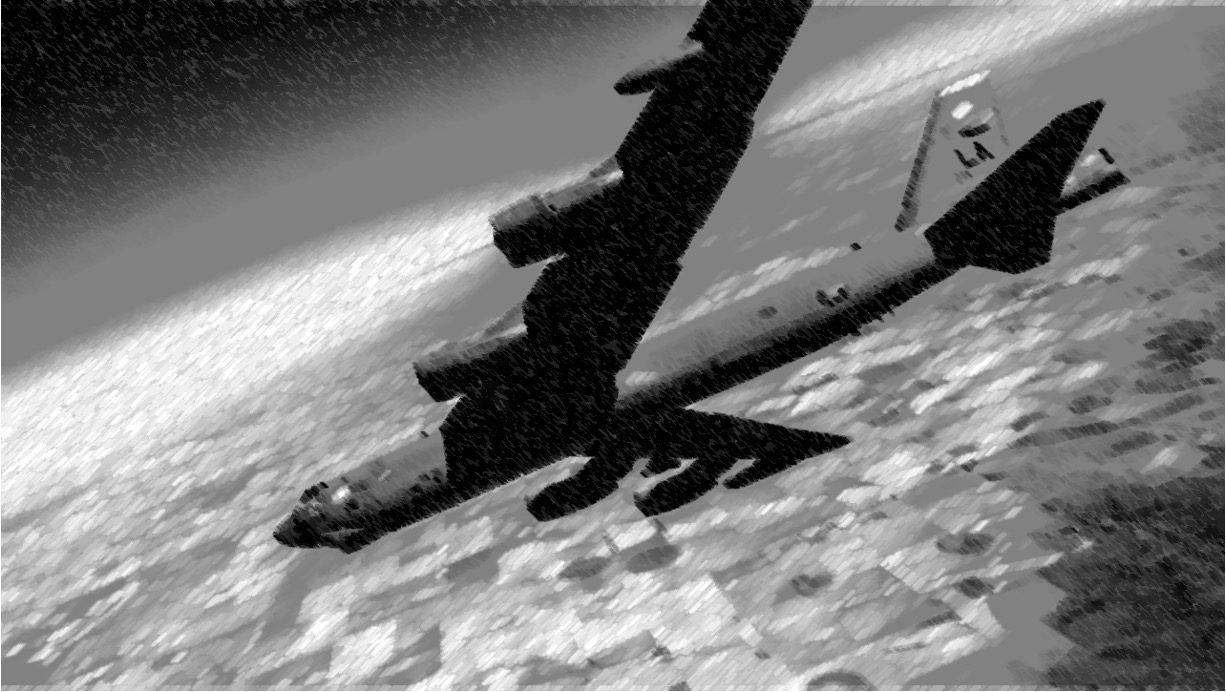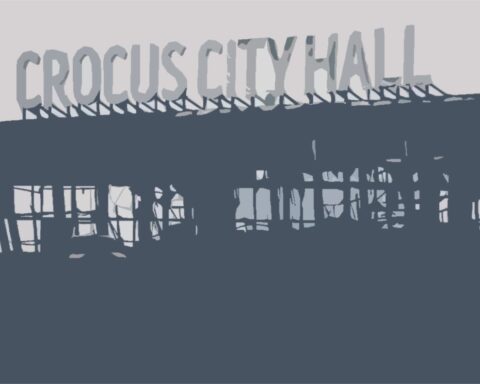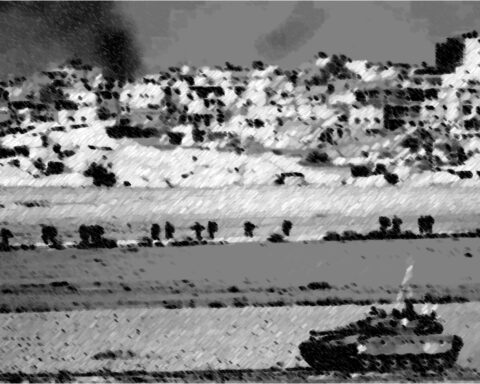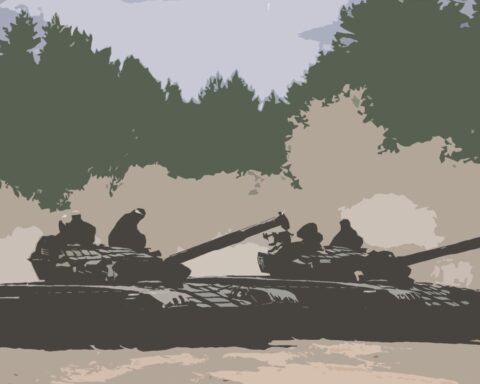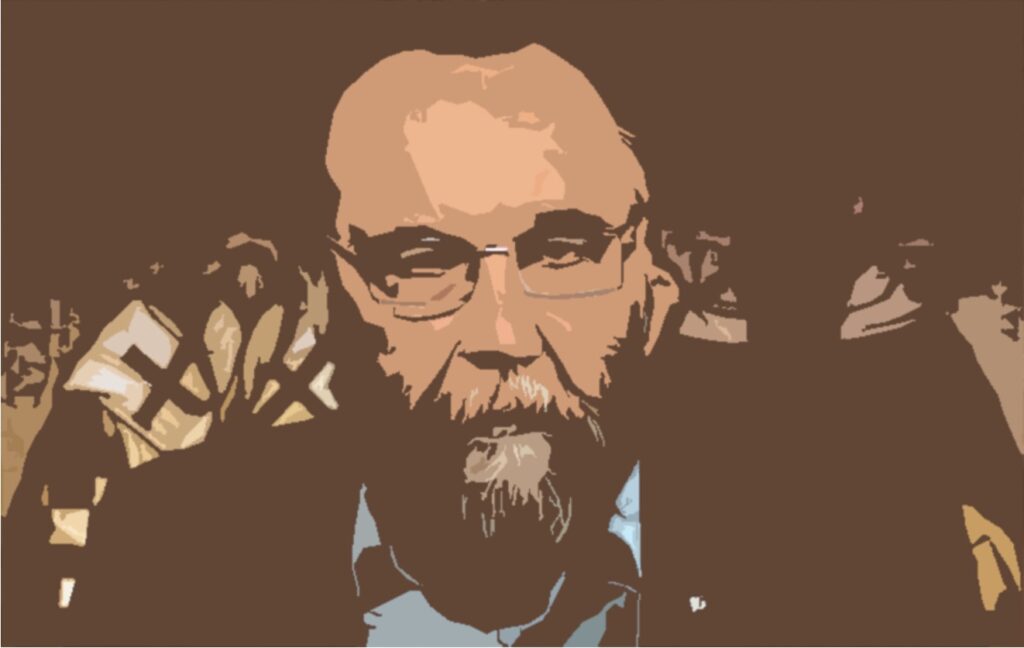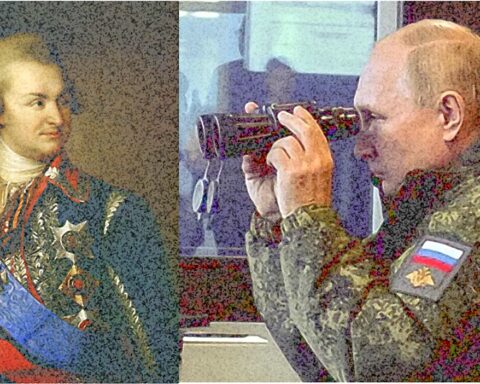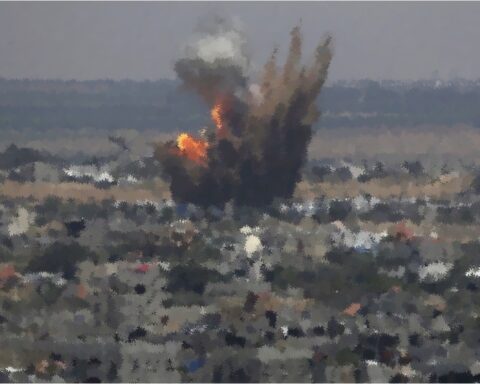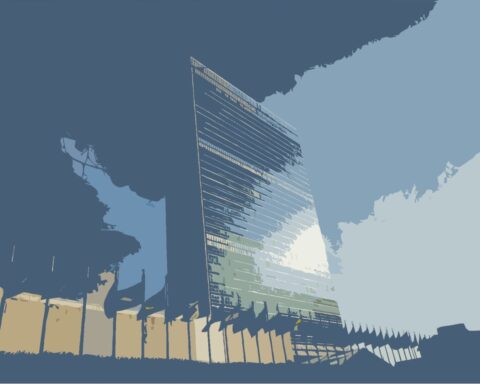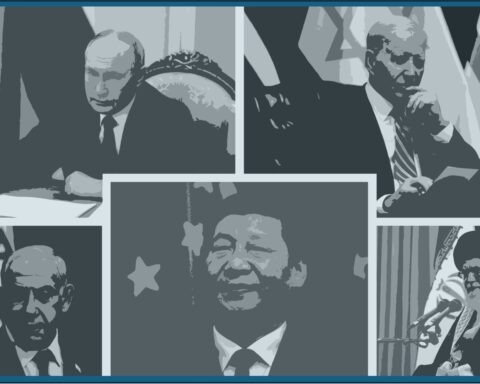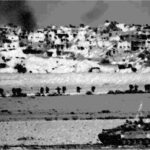The enemy of the USA was the USSR, and we used to immerse ourselves in volumes of books, somewhat like studying. We would look at the enemy’s capabilities and resources, conducting detailed analyses for power calculations. During the Cold War, the nuclear threat was of utmost importance; thick books with red covers came and went. In that era, without computers, we prepared templates and notes for ourselves to use the millions of data written in these books when needed. However, we sometimes wondered, what really was happening, and how much was our country involved in these matters. We would try to understand the differences between the recipes, the experiences, and the desired outcomes, and discuss among ourselves. How did countries enter World Wars? Why were the USA and the USSR producing so many weapons? Why did the USA lead the establishment of NATO? What could be the outcome of a nuclear war if it began? How serious was the Soviet threat? What would be the situation of Turkey if a war started? There were many more questions. There were dozens of countries in NATO and as many in the Warsaw Pact. Each had a different position and situation. Planning meetings and seminars were held among allies.
We started our profession by learning the concept of strategy. Because the weapons in our arsenal were strategic in nature, our targets were of strategic value, the war we were preparing for was strategic in nature…
Let’s then talk a bit about strategic systems and forces. Weapons of Mass Destruction and their delivery systems, produced for use at sea, underwater, in the air, space, and on land, are all part of the “strategic force”. The power calculations of such a force are done according to their own characteristics and logic.
What is strategy? Although it might not have been expressed in this language, if its function is as old as humanity, then, like war and politics, it is a concept corresponding to the nature of humans. Even though its root in today’s language usage comes from Ancient Greek, we at least know this: the ancient cultures in Asia have implemented the methods of this concept extensively. Looking at the works we read about the concept of strategy in the modern era, maybe because they are inclined to write and draw, we probably know most about the explanations of Europeans on the subject. Strategy is not a concept of a language, ethnic group, or religion, but a valuable concept belonging to all of humanity. Strategy is the description of a long and certain path that a person must follow to achieve success. Strategy is the long roadmap towards a much better and sustainable position than the current situation. In this sense, strategy is a chain, each link of which encompasses capturing a planned target. Various tactics are applied to capture these targets, each of which is original and based on calculations. Since strategy covers a broad period, it must be adaptable to changing environmental conditions. Strategy should not be rigid and straight like a metal rod, but flexible and applicable like a chain. If there is no winning, there is no strategy. There are many different definitions of winning. The confusion starts from this point, as there are those in the world who define winning with different expectations, both real and unrealistic thoughts. To prevent any confusion right from the start, let me say, strategy is a fundamental concept inherent to humans, explained with the necessities of this world, and includes real winning.”
If cultural degeneration begins, the use and content of the concept of strategy also weaken. If strategy is easily and frequently misused, it indicates that the society’s values are eroding. Those who use it simplistically aim to appear different and thus seek to make their words seem valuable. This leads me to wonder how many of the claims made are as they should be. Looking at what is written and illustrated in this field globally, I find points quite different from what my peers think. I will explain this important topic of strategy once more. In doing so, I will also provide concrete examples from war zones like Afghanistan, Ukraine, Russia, Israel. I will base my discussion on the United States, today’s dominant power, as the most active political-military developments occur in areas involving it.
Let’s start from a point… Many people considered America’s withdrawal from Afghanistan as a “defeat.” My view differed because I always approached the issue from a strategic perspective. In August 2021, I expressed these topics. Elderly Joe Biden, upon taking office in the U.S., essentially said: “The U.S. initially entered Afghanistan for Al-Qaeda, and that mission ended between 2001-2011. From 2011-2021, U.S. administrations contemplated withdrawal but couldn’t take the necessary step. Now, I am making this decision. America is not obliged to further sacrifice and support Afghanistan’s ‘nation-building’ project. I talked to Ashraf Ghani in July 2021 and told him that the responsibility is now his. I was clear; this is my policy. Afghans couldn’t become a state themselves, couldn’t show the arrangements and determination to ensure their security. We are sad, but we are leaving them to themselves. Our strategy is not to stay in Afghanistan any longer, but to leave immediately. This will better secure our interests. This signifies the end of America’s longest war. We have spent so much money!..” What does all this mean?
Such matters are truly strategic; they require calculation, not emotional decisions. At this point, it’s a failed state-building project for the U.S. If the problem was Al-Qaeda due to the 9/11 attacks, then that is accomplished. However, the declared war of the U.S. was named “Global War on Islamic Terror.” Did the U.S. want this war to end? No. It changed its direction, influence, and fronts. This led to opening other doors, like the situations in Iraq and Syria. The example of the Islamic State of Iraq and the Levant (ISIL) should be considered from the perspective of the U.S.’s “Long War” strategy and how it directed this war. If they are not a major threat anymore, ISIL-H is in Central Asia, and other ISIL groups are in Africa.
Could anyone have stopped America if it wanted to stay in Afghanistan for another century in its known manner? Think of the wars of olden times. Gain control of a territory by winning a war, maintain sovereignty over the conquered land until it’s lost in another war. The U.S. could have stayed in Afghanistan in this manner, but in today’s fast-paced world of significant changes, America made and implemented such a decision to develop new moves in line with the times. This is a strategic decision. The applications of America’s wars should be considered with new methods like Full Spectrum Warfare, Multi-Domain Warfare, Smart Power Use, etc. Otherwise, you might have delayed evaluations in accurately interpreting what happened. However, America’s aim was not to “occupy” the region as the Soviet Union wanted to during the last decade of the Cold War (1979-89). It was something else: to create useful areas for itself with both state-building and the global terror narrative. Ultimately, the Afghan people themselves would have to achieve statehood. After the Cold War, America would hold this strategic geography for a long time, then hand over administration to a regime of its liking and leave the region. Maybe it would leave some troops behind, just like it did in some locations after World War II.
One needs to learn to view the world from a strategic perspective. What I’m saying is not an endorsement of America’s actions and strategies. Strategy can only be analyzed from another’s viewpoint. Because strategy is what the executor can do with their own power and a roadmap. Generally, the strategic perspective is proportional to power. The strategy of a very powerful entity and that of a weaker one differ in every aspect: time, geography, conditions, forces, methods, and policies… You can’t see the U.S. and, for example, Germany or Iran, Russia with Japan or Saudi Arabia, on the same scales. Even between the U.S. and Russia, there are differences in culture, geopolitical values, and ways of applying power; in terms of which position and time, with what force, and how they want to do what they intend to do, different calculations are needed. Therefore, the most important thing powerful commanders in ancient times wanted to know on the battlefield was to accurately predict what the opposing commander would do.
When determining a strategy, the ideological perspectives, high goals or ideals, and general aspects of cultures of countries must be included in the calculations. If there is a certain power in front of you, of course, you won’t be helpless; you will also have a strategy. However, when calculating what you can do against a power that has defined power ratio, planned force deployment to a position, and clear policies, you cannot act solely based on your own ideology and emotions; you need to look at the other side and have a solid calculation. Your expectations should not necessarily be the narrative style determined by the politics of those who contribute to your feelings and thoughts.
What I see is the danger of the proliferation of the perspectives of ideological, emotional, and somewhat incompetent individuals, and in this age of increasing social media pressure, the production of outcomes that allow those acting without calculation to create a public opinion for their own interests. This must be another form of populism! Truth be told, aside from the biased actions of some governments, their creation of processes that trap themselves based on incorrect perspectives, how can this be overlooked?
If the timing and ground are suitable, and your power is sufficient, in these conditions, one thinks and acts against certain powers and their moves. The purpose of expressions that do not turn into action is well understood by the other party. Merely challenging for political purposes and trying to hold a place in the field are easily assessed by the opposite side. If the side reflecting strategic power on the field deems it necessary, they may provide certain opportunities; otherwise, the chances of intervention and effective influence are quite limited. All these strategies are expressed with formulas based on multi-faceted power calculations and with previously tested scenario results. This involves calculating, data gathering, converting to scenarios, obtaining results, and presenting them to decision-makers. This does not happen by just throwing out ordinary ideas!
Here, I am not talking about conjunctural, operative, and military-political maneuvers. The talks of those who know nothing about war and strategy in their life and who have risen to a place with only superficial studies on strategy are already invalid. Making politics is one thing; creating a strategy is another. Capturing the targets tied to the plans of the created strategy is also different. Sometimes decisions are made very quickly, sudden movements are seen, easy explanations are given, directions are completely reversed, and all these can even be considered successful maneuvers. There is no maneuver in strategy; maneuver is at the operative and tactical levels. In strategy, there are plans prepared, developed, and continuously revised according to various scenarios. Decision-makers choose: Plan A. If not, Plan B. This is the way and method in strategy. Those who encourage such variable and special attitude approaches have one thing in common: they come together with those of the same mind. At some points, those who misinterpret strategy feed each other and create a symbiotic relationship in the environment.
Let’s look at the 2023 data; even when the U.S. economy is bad, the defense budget for 2024 is 886 billion dollars. It has a military presence in every area of the world, and it continuously conducts activities in the Indo-Pacific region to exhaust its rival China. It maintains its support for Ukraine and Israel with additional budgets. You can add other expenses to this. This huge budget is spent in its own country, in the defense industry, in every part of the world, in current conflict zones, in exploited areas, and in regions that are desired to be conflict zones in the future. What I mean to say is that this budget is calculated and spent for the implementation of plans necessary for the U.S.’s strategy. Therefore, it is possible to look at strategy in terms of budget scales. The strategy turns into action, hence the increase in the defense budget.
Do you know what the real strategy for America is? It is to develop global economic values under its control through these security policies. I think it is important that America is the only power with this strategic experience, and it is a difficult but mandatory struggle for its rivals.
What I want to express here is not about the U.S. or Russia, Biden or Putin, liberalism or state capitalism, democracy or autocracy, this country or that power, this front or that back; it is to show those who see strategy as simple what it should be. Strategy is not about making simple interpretations and ordinary analyses. It is important to be able to analyze strategy. I am studying the strategy of America, which is different. For example, China’s strategy is different again. I choose to explain the situation at hand as objectively as possible every time. If the topic is strategy, it is not something that is told according to the direction of the wind. The whole matter is about evaluating everything related to the air, the atmosphere, and the ground as a whole, using records kept over the years, playing with future projections, and determining the fundamental results about what could happen. Even weather forecasting requires a calculation.
Let’s continue; in the matter of Russia’s invasion of Ukraine, I started to explain my evaluations with strategic significance from the moment Biden and Putin met in Geneva and failed to reach an agreement. In my opinion, this was a decision point; the situation presented in Geneva was also indicative of what could happen next. I thought: “Ukraine is one front of this affair, the main front is between the U.S. (NATO) and Russia, extending from the Baltics to the Caucasus, centering Eastern Europe.” Putin launched a comprehensive operation in Ukraine, and I was one of the first to criticize it operationally: “Things are not going well for the Russian army,” I said. I have been following the Russian army system since the eighties. The war in Ukraine is still ongoing. Turn your head and look at the Israel-Hamas conflict. While Russia is busy in Ukraine, the U.S. is sending its strategic forces to the Middle East.
Even in 2019, I carefully explained the Levant region (Eastern Mediterranean), revealed Israel’s policies, and made my assessments about possible issues. In a holistic and strategic approach; I explained the policies of the European Union, the Cyprus issue, the situation of maritime borders in the Eastern Mediterranean, the developing relationship between Israel, the U.S., and Greece/South Cyprus, the impact of this relationship on processes, the U.S.’s energy policies in the region, and the issues of Syria and Lebanon, and above all, the Palestinian issue in detail.
Today, there is a kind of war between Israel and Hamas. I determined this from strategic and polemological aspects and explained its political-military aspects. This war has been going on for over two months and continues, and I see that those who spoke ambitiously in the beginning are now silent. In matters of strategy, one does not speak by rote.
According to some, America, which was defeated in Afghanistan and “fled” from there, how did it make a strategic move on October 7, just a few hours after Hamas attacked, while the world was still trying to understand what was happening, and the White House deployed its strategic forces to the region, showed its political and diplomatic stance, and opened the faucet of all kinds of aid to Israel. I listened to the assessments, they said, “The U.S. does this when it comes to Israel…” Is this the possible explanation with a strategic perspective? Such an explanation can only be an expression of a stance or emotional opinion. A strategic approach must be based on a functional calculation.
Look at the Middle East for the U.S.; where is it? In Iraq, Syria, Israel, the Gulf Countries, Greece, S. Cyprus, operating energy facilities, securing strategic points… Of course, the U.S., more visibly since the World Wars, has been conducting its Israel-centered strategic actions in this region. With this view, it has established and supported its presence in every point of the Middle East, the Mediterranean, Africa, the Black Sea, and the Caucasus. Not enough, as soon as a Hamas attack occurs, it transfers additional strategic forces to the region before anyone else. From this, we must conclude that there are “strategic preparation” and “strategic gain” calculations in this reaction.”
I believe it is necessary to explain the overall situation to you in different terms. Did the USA, after the Cold War, achieve its gain in Iraq, Afghanistan, and against (in its own terms) global terrorism in this region? Has the USA developed arguments and capabilities to destabilize various regions when it wants? Did it enter a renewal process for its conventional and nuclear capacity? Did it ensure the expansion of NATO? Did it engage its fundamental enemy Russia in Ukraine? Did it ensure the consolidation of Europe’s security perspective? Has it taken steps to start new projects in Africa and the Indo-Pacific regions, which it had neglected until now? Is it continuing the (in its own terms) Long War? Along with all these, could it be strengthening its own controlled front against China? With these fortified global strategic plans and objectives, can the USA create the necessary implementation environment for policies to control the global economy, technology, sociology? Can it calculate and implement a strategic mission to produce new values and, in this regard, new systems, and to lead the world from its own perspective, or is it acting without any calculation?
But what state has the dominant power USA brought the world into? Cities have been destroyed, people have died… Strategy means war. War means destruction and death. Those who speak of strategy outside its fundamental channel should not forget this reality. If the USA wants to continue its hegemony war, which is unthinkable otherwise, this strategic formation will not change. This means that there are real situations to be explained and calculations to be made by looking at the power parameters of the USA. This is the USA’s war and strategy; it is impossible for me to accept it anyway. And the rivals (enemies) of the USA are developing: Again Russia, a new actor China. They have their strategies too.
The words of those who think small, those far from strategy, those who put forward emotional and local ideas with populism, and who develop their personal day with symbioses can be deceptive! If the subject is of this magnitude, you too must think big.
Now let’s come to what the USA benefits from to implement its strategy. This is one of the confusing issues. For example, look at the Middle East, what conflicting points does the USA use in this geography? If they are not in conflict, with what small initiative can it set which topics against each other? Let me remind you of the theory of the matter at this point: “Intelligence is done on the strong, sensitive, and weak aspects of enemy or potential enemy countries. When planning, one avoids the enemy’s strong sides. Weak sides are exploited. Sensitive points are weakened. Various means are used in weakening processes.” It is written in books with quite simple sentences like this. Where are you when the plan is implemented? For example, in the Middle East, who or what do the USA, the UK, Israel pit against each other to achieve their goals? So, being against the USA or others is one aspect of this issue, not doing or being unable to do what is necessary is the other aspect.
As you have noticed, a common point of most of the talks made with populist approaches from outside the topic shows the deficiencies in this field, and the way of speaking is fervent. The conflict between Israel and Hamas started, some time passed, and then you heard the speeches of the Hezbollah leader or Iranian leaders that emerged afterwards. It’s possible to speak, but where is the action? Pretending to do something… What is the strategy? Maintaining their acquired positions. This is their strategy. Who will they maintain their positions against, what will they lose if they take risks? Isn’t it clear from the outside? Again, a short time after October 7, when the direction of this conflict began to become clear, the Organization of Islamic Cooperation and the Arab League came together, the relevant people made speeches from the rostrum, and expressed their wishes. In reality, while Israel, America, and the UK were developing the situation in their control in the middle, many countries could not take a step on actual action. So, what will happen to this Palestinian issue, in these actual conditions, what is your prediction? There is also the energy equation in the Eastern Mediterranean, of course… Who is inside this equation, who might be left out? For example, the USA and the UK have already significantly weakened Russia’s power in the Mediterranean. Russian officials began to threaten the world with nuclear issues when they got stuck on the Ukraine issue. Why did they come to these levels, think strategically. But if some experts say, “I trust the Russians, they will fire missiles against the USA!..” Such expressions cannot even be the subject of strategy.
For instance, starting a nuclear war is not an easy task, and its perspective is expressed with strategic scales. When the Kremlin put forward its nuclear threat regarding the Ukraine issue, it turned out that Chinese leader Xi Jinping told Vladimir Putin to stop at that point. Because China is still operating its own nuclear power building schedule. Its own force will be able to reach the levels it wants from 2027 onwards. Would China want everything it has built so far for development to disappear all at once, and that too on the initiative of another country’s leader? Therefore, thinking extensively is one of the main functions of strategy.
While developing strategies, intelligence agencies, politicians, necessary government bodies, and both formal and informal structures work in their own fields. Initially, an analysis of the field is conducted to identify sensitive and weak points. Conditions in the targeted area are then manipulated to achieve the desired state. People often believe that life continues as normal during this process. However, certain preparations are made in a planned manner for something to begin; this is a phase of the main plan. A strategy is anything before it is implemented, and once implemented, it becomes a strategy. During implementation, pre-planned actions are reflected in the field, and at this point, all forces (hard and soft) are in play.
Before concluding this article, I would like to express some points that I find important. You may consider these as personal opinions. For instance, I will not start from the period of the Crusades, but rather, let’s look at the recent past. For every situation, let’s read the USA, the White House, the State Department, the CIA, and the Pentagon together. During the Cold War, the United States established the Central Command (CENTCOM) in the war between Iran and Iraq (1980-88), founded in 1983. CENTCOM was active in both of the US’s wars against Iraq (First Gulf War 1990-91; Second Gulf War 2003-11). After September 11, 2001, the US, with CENTCOM and additional deployed agencies, declared the “Global War on Islamic Terror”. This war continues (e.g., ISIS). During this time, what did the US do? It determined a strategy for all Muslim geographies. This strategy included analyzing the political parties, leaders, NGOs, separatist elements, and sociological structures of these countries, identifying those sympathetic or opposed to the US, and began managing the processes step by step in line with its interests. The US strategy includes its enemies, allies, and structures it can use. For example, Israel or Europe, by timely assessing the situation, are able to make their own plans. These are seen as additional factors in policies reflected in the field beyond those of the US. Look at the post-Cold War developments in this very general framework to understand what strategy is, what implementations are taking place, and what revisions are being made. Today is November 29, 2023. It has been 22 years since September 11, 2001. Now, assess your position in this context and scrutinize what you express today. What was your status when the US was gathering intelligence in the region, identifying sensitive and weak points, working on scenarios for its strategy, identifying allies that would serve its interests, collaborating with its allies, making necessary revisions over time in its work, and implementing its plans one by one, for example, in the Israel-Palestine issue, what did you expect to happen, and what do you see now? It is essential to look at the whole strategy! Those who use the word ‘strategy’ for populism, please stay a bit away.
In conclusion, I would like to think that the importance of strategy is understood. The Cold War was different, and what came after is even more so… What haven’t we experienced in these processes! What else can happen? My special effort is to move forward with institutional structures, and in this sense, any shortcomings should be addressed.
